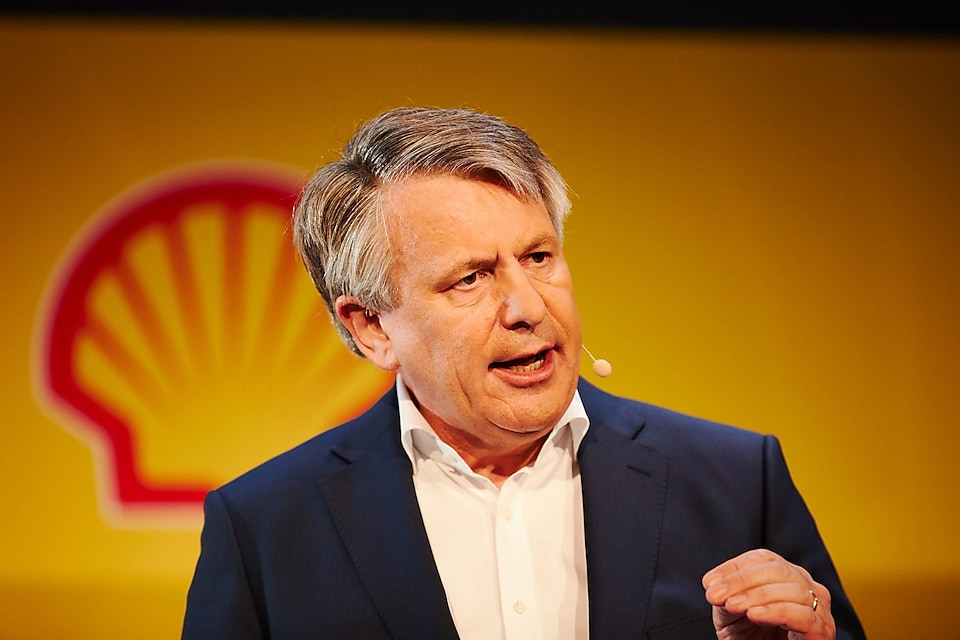(Bloomberg) — Shell Plc Chief Executive Officer Ben van Beurden will step down at the end of this year after almost 40 years at the company, to be replaced by the firm’s head of gas and renewables, Wael Sawan.
van Beurden
Van Beurden, 64, has steered the company through some of its most turbulent times. The first big move of his tenure as CEO, which began in 2014, was the takeover of rival BG Group Plc, a deal valued at close to $50 billion that tested the company’s finances during an oil price slump, but is now paying off as natural gas prices soar.
Industry groups praised his leadership over the years. Offshore Energies UK CEO Mike Tholen said he “played a major role in supporting this rapidly evolving sector as it strives to deliver a net zero future, and in doing so recognizes the challenges facing Europe to come through the current energy crisis.”
At the outset of the Covid-19 pandemic, Van Beurden made the first cut to Shell’s dividend since the Second World War, a move that upset investors and underscored the seriousness of the global health crisis for the oil and gas industry.
These two events will define the departing CEO’s legacy, said Biraj Borkhataria, an analyst at RBC Capital Markets.
The BG takeover, which was criticized at the time, now looks like a good deal “following recent geopolitical events and the tightening of the global gas market,” Borkhataria said. “The dividend cut in 2020 is obviously something that no Shell CEO would like to be associated with,” but it put the company on a sustainable financial footing.
Shell is now poised to return a record $30 billion to investors this year, Borkhataria said. Shares rose 0.2% in London, taking this year’s gain to more than 44%.
The departing CEO was also the architect of the company’s plan to shift from fossil fuels to cleaner sources of energy. He “has been in the vanguard for the transition of Shell to a net-zero emissions energy business,” Chairman Andrew Mackenzie said in a statement on Thursday.
Van Beurden joined Shell in 1983 and worked in the Netherlands, Africa, Malaysia, the US and the UK. Prior to becoming CEO in January 2014, he spent 10 years working in Shell’s liquefied natural gas business and ran the company’s chemicals unit.
Despite being a Dutch national who studied chemical engineering at Delft University of Technology, Van Beurden led Shell to a major overhaul of its legal structure that relocated its headquarters from the Netherlands to London and dropped “Royal Dutch” from its name. The move was a reflection of strained relations with its home country, where a major pension fund had dropped all fossil fuel producers from its portfolio and a court had ordered the firm to slash emissions harder and faster than planned.
Huge Payout
The appointment of Sawan as the new CEO reflects the long-term shift in Shell’s priorities, along with much of the industry. The company has pledged to move away from oil toward natural gas, hydrogen, wind and solar power. That shift presents the company with many challenges, but also opportunities, Sawan said.
“I’m looking forward to channeling the pioneering spirit and passion of our incredible people to rise to the immense challenges,” Sawan said in the statement. “We will be disciplined and value focused, as we work with our customers and partners to deliver the reliable, affordable and cleaner energy the world needs.”
Sawan was born in Beirut in 1974 and holds dual Lebanese and Canadian nationality. He grew up in Dubai and holds a master’s degree in chemical engineering from McGill University in Montreal and an MBA from Harvard Business School. He has worked at Shell for 25 years in roles around the world, including stints as executive vice president for deepwater, and for the company’s operations in Qatar.
“Sawan is well known to the market and his appointment has been arguably well anticipated,” JPMorgan Chase & Co. analyst Christyan Malek said in a note. “We expect him to maintain Shell’s pragmatic and holistic approach to the energy transition.”
Van Beurden will continue working as adviser to the board until June 30, 2023.
